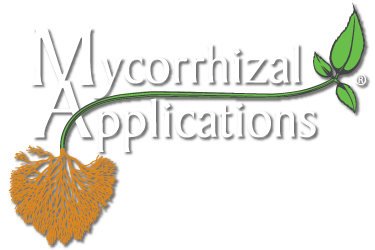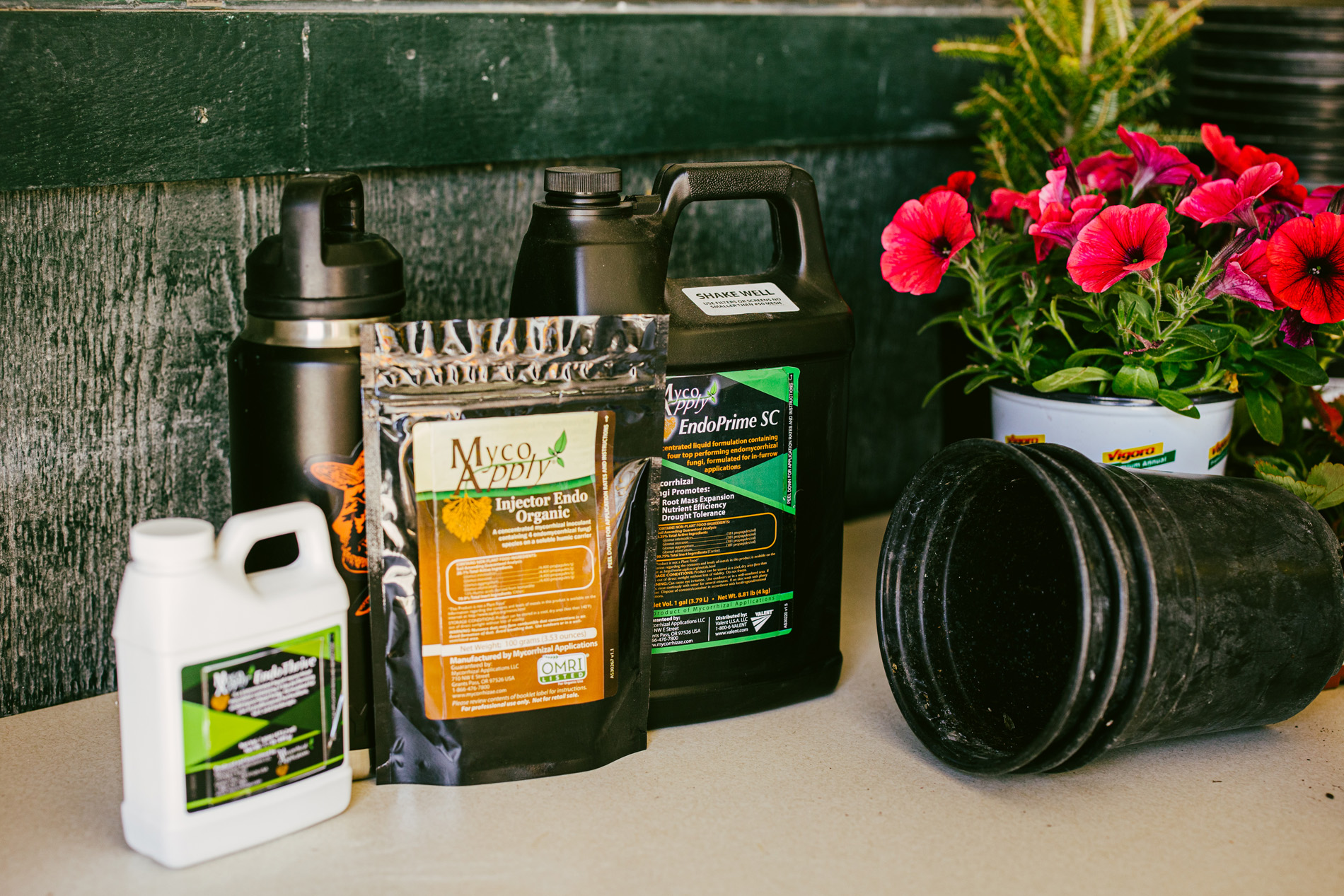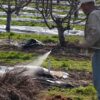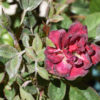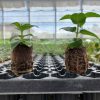Spring 2022 has not been a repeat of spring 2021 for most North American growers, retailers, and landscapers. Gone are the more simplistic days of supplying products to a Covid restrictive captive audience. Overcoming challenges have been the norm for horticulturalists this season. In this article, we will focus our attention on areas where your actions can make a difference. We are not advocating that mycorrhizae application is the panacea for all of today’s challenges, but it should be seen as an important tool all of us can use to mitigate risk for the plants our businesses are built upon and ultimately increase the stability of the industry’s growing, retailing and landscape industries.
Before I discuss how mycorrhizae can benefit the horticultural industry during tough times, let me first review what mycorrhizae are and how they benefit plants. Mycorrhizae are rhizosphere-based soil fungi. They form symbiotic connections with the plant and expand the root absorptive area of the plant. The increase in the root absorptive area can be up to 50 times. This is accomplished by developing a mycorrhizal hyphal network in the soil. These hyphae are typically one-tenth the size of a root hair and can extend up to 24 inches (61 cm) beyond where they are attached to the root. Both container-grown and field-grown plants benefit from a mycorrhizal association. This also does not mean a container-grown plant will become more root-bound, however, it means the hyphae will expand throughout the container and capture a greater percentage of the available water and nutrients. Nutrient and water absorption occur along the entire length of the hyphae, as opposed to a root and root hair that only absorbs at the tip. With mycorrhizal hyphae, mineral nutrient uptake occurs in the soluble and insoluble pool in the rhizosphere. Root and root hair uptake only occur in the soluble nutrient pools. Due to the expansion of the root absorptive area, plants grown with mycorrhizae can capture nutrients and water that the traditional plant root and root hair system would not have been able to physically secure since they did not extend to that portion of the soil. And finally, the rate of uptake is not limited like a root hair, leading to a greater inflow of water and nutrients with mycorrhizal hyphae. In summary, plants form symbiotic relationships with mycorrhizae to develop a more reliable source of nutrients and water; resulting in a reduction of abiotic stresses.
Our industry is heavily influenced by the weather. As we all know our spring weather patterns have become less typical and often more extreme. This past spring portions of the country have stayed cold with temperatures way below normal. We even had late May snow in some markets. When the season is late, growers try to hold their crops by restricting watering and nutrient feed. Mycorrhizae-treated plants will continue for a short period of time supplying nutrients and water at sufficient levels to promote a healthy plant without encouraging growth and delaying abiotic stress. When it is time for these plants to go out into the cooler than normal conditions, the plants are better prepared to handle the cooler temperature abiotic stress, and landscapers and home gardeners will have greater transplant success.
In areas of the country that got hot and dry early, the abiotic stress has changed, but the plants’ ability to better handle the stress stays the same for mycorrhizae-treated plants and their success at transplant. Once transplanted the mycorrhizae-treated plants quickly work to expand the hyphal network and improve the plants’ ability to uptake water and ultimately better handle the abiotic stress.
Industry experts have suggested the slowdown in plant purchasing can be attributed to the reduction of casual gardeners’ purchases. With the threats of Covid-19 currently reduced, many previous casual gardeners have moved to another area of entertainment to spend their discretionary income. Plants grown with mycorrhizae have several benefits that could help to draw back these plant buyers. Often plants grown with mycorrhizae hold up better at retail. They better withstand abiotic stresses. First, they come off the truck looking better, second, the extra reserve of nutrients allows the plant to have darker foliage longer and delay chlorosis, third, the additional storage of water helps prevent the plant from being wilted and unsalable; and finally, forth, mycorrhizae grown plants typically display more blooms making them more desirable.
One of the long-term impacts of Covid on our economy has been the reduction in available labor. Despite all the industry’s efforts to automate, we still are a labor-intensive industry. Plants grown with mycorrhizae often require less labor to water and fertilize, since they have a reserve in the expanded root absorptive area(water) and the mycorrhizae arbuscules and vesicles (nutrients). Plants typically grown with mycorrhizae experience better health, potentially leading to less labor for plant care activities. And finally, plants grown with mycorrhizae typically are more uniform in their finishing, leading to less labor when orders are picked.
As we all know fertilizer prices have skyrocketed, with no reduction in prices in sight. Mycorrhizae-treated plants absorb more of the nutrients you apply. Growers will get a better return on investment for each fertilizer application since more of the applied nutrients are captured by the expanded root absorptive area and transplanted back to the plant. More nutrient uptake and less fertilizer loss is a beautiful thing. In longer-term crops, growers can reduce their fertilizer rates when the plants are treated with mycorrhizae. The ROI of mycorrhizae use can become significant when fertilizer usage is reduced at today’s high prices for fertilizer.
Plants grown with mycorrhizae have biological crop insurance helping them better handle abiotic stress and better adapt to uncertainty.
If you have any questions about anything covered in this article or MycoApply Mycorrhizae, please contact your local Mycorrhizal Applications Representative or call 866-476-7800 or email us at inquiries@mycorrhizae.com.
